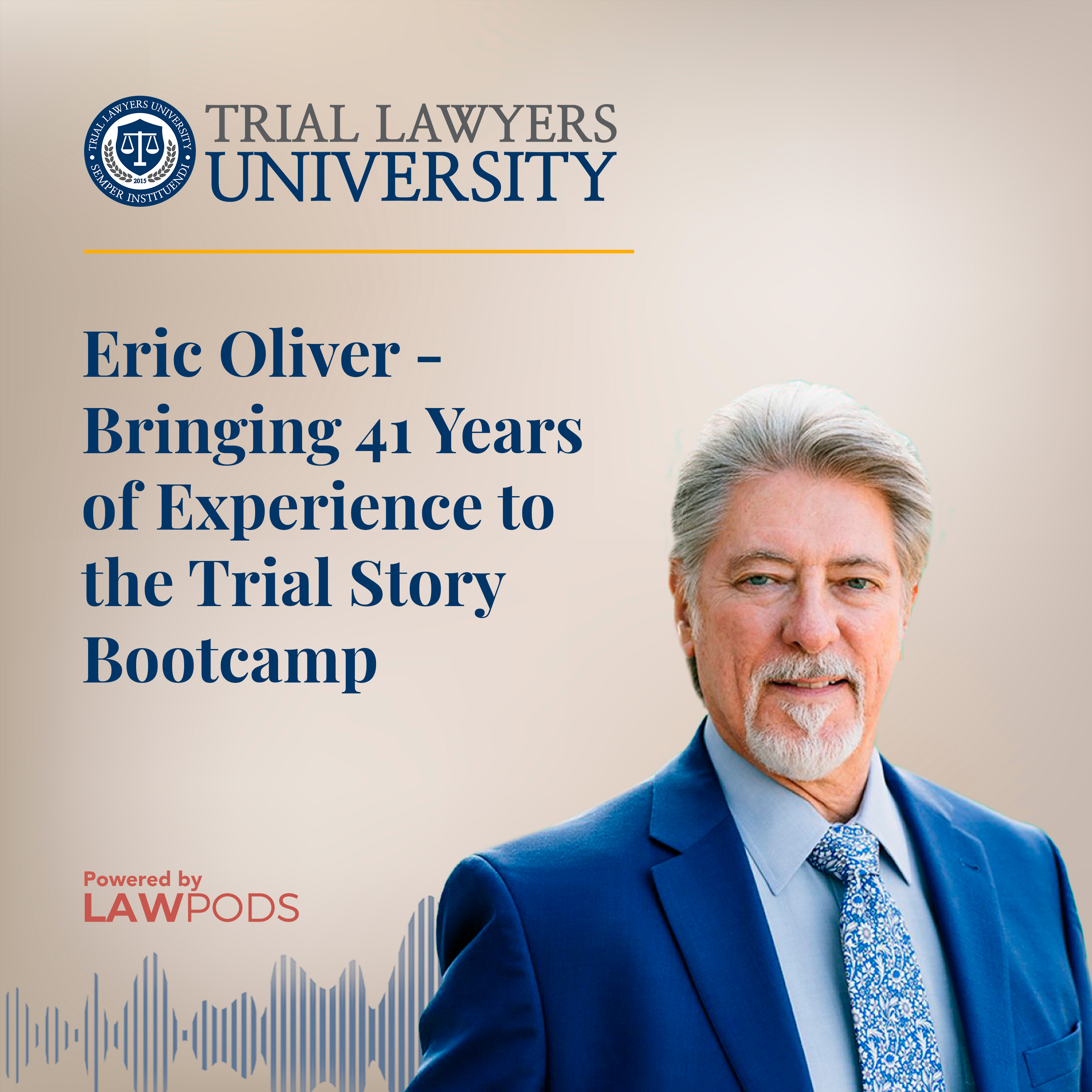Eric Oliver - Bringing 41 Years of Experience to the Trial Story Bootcamp
- Author
- Dan Ambrose, Trial Lawyers University
- Published
- Wed 10 Sep 2025
- Episode Link
- https://leighs50.sg-host.com/85-eric-oliver
In 1984, Eric Oliver was teaching persuasion skills to marketeers in computer firms. When he transitioned to trial consulting that year, he found a new audience. In two years, “lawyers took all my time…because nobody had ever taught persuasion, influence, and communication to attorneys at that time. They still don't.” In this wide-ranging discussion with host Dan Ambrose, Eric reveals how he accidentally discovered his calling. Now, he teaches lawyers how to manage juror perceptions, combat post-truth decision-making, and overcome impaired attention in modern courtrooms. Tune in for his insights about anchoring techniques, mirroring for rapport, and opening statements that can put you far ahead of your opponent.
Train and Connect with the Titans
☑️ Eric Oliver
☑️ MetaSystems Consulting | YouTube | LinkedIn
☑️ “Case Story Bootcamp,” Oct. 28 - Nov. 1. In Las Vegas
☑️ TLU On Demand Instant access to live lectures, case analysis, and skills training videos
☑️ TLU on X | Facebook | Instagram | LinkedIn
☑️ Subscribe Apple Podcasts | Spotify | YouTube
Episode Snapshot
- Eric entered trial consulting after teaching marketing to computer firms when a lawyer read his Yellow Pages ad for nonverbal communication; the lawyer asked for help facing his most feared opponent and did “remarkably well” after working with Eric.
- Eric discovered that most law school training is counterproductive to effective communication, requiring lawyers to unlearn academic approaches to connect with real people.
- Nearly 50% of jury pools now consist of "post-truth deciders" who assume the game is rigged, prefer deciding against defendants over for plaintiffs, and believe wrongdoing should be knowing rather than mere negligence.
- Modern jurors suffer from impaired attention in three ways: shorter attention spans, weaker concentration abilities, and fragmented focus that creates self-distraction even without phones.
- Eric pioneered a "frame of mind exercise" that uses anchoring techniques to help lawyers connect physical cues to confident mental states.
- Successful case storytelling requires consistency, using the same framing sequences to help jurors with short attention spans follow the narrative thread.
Produced and Powered by LawPods
